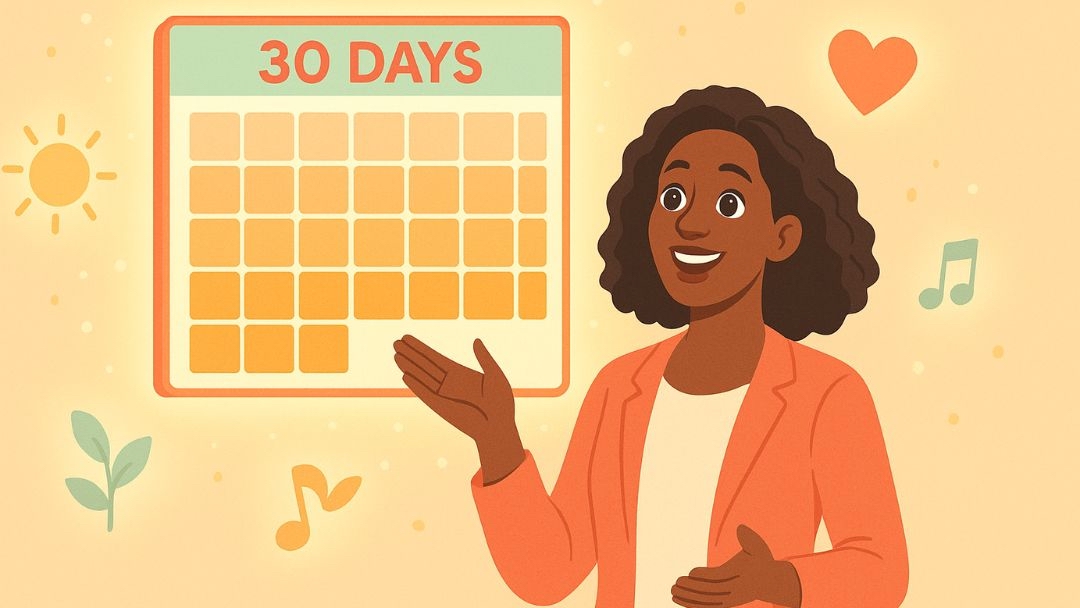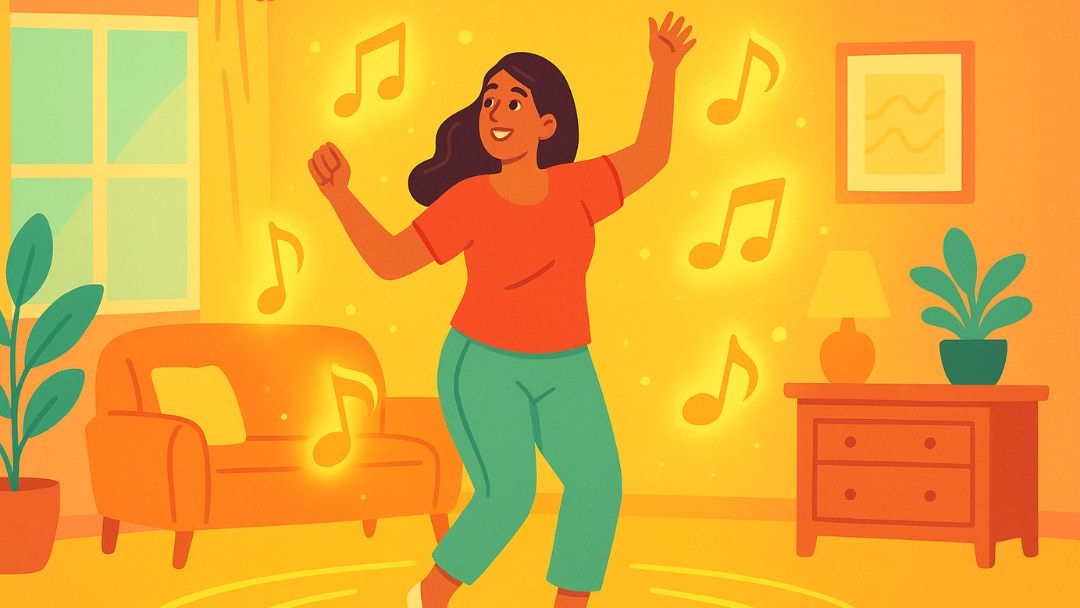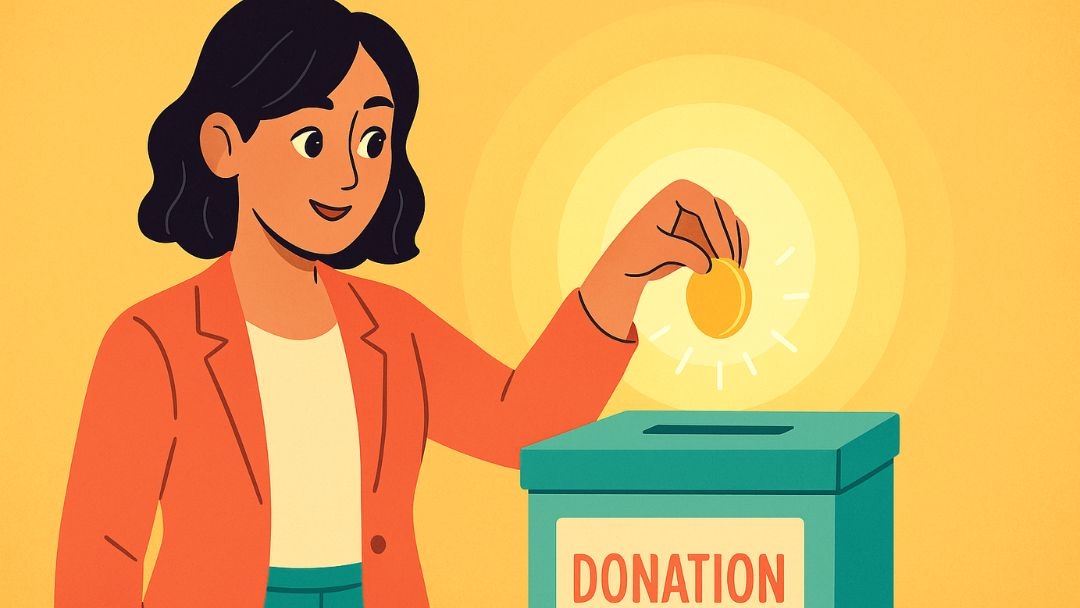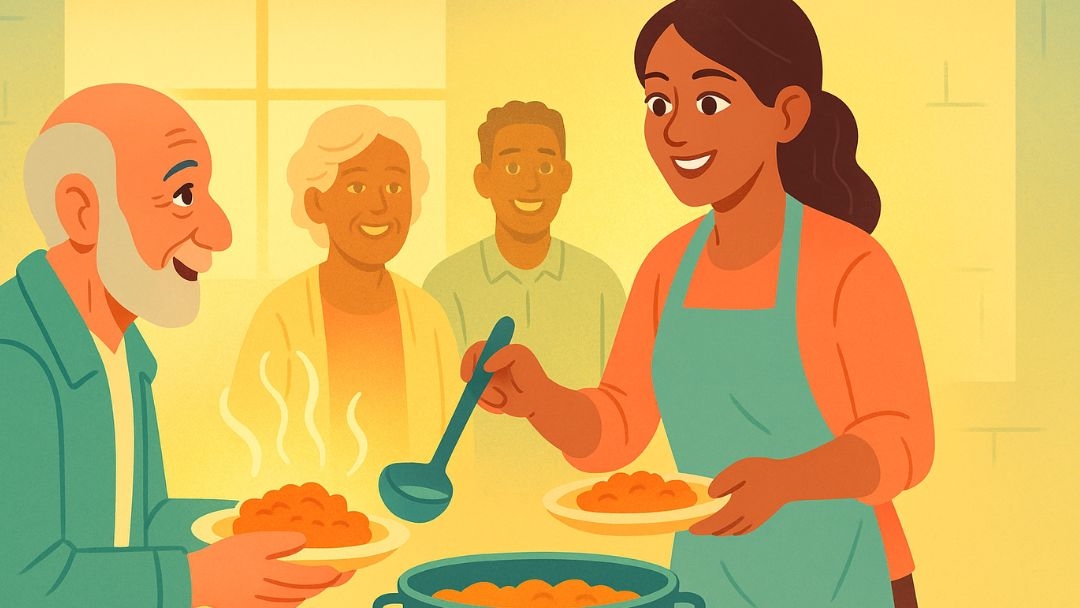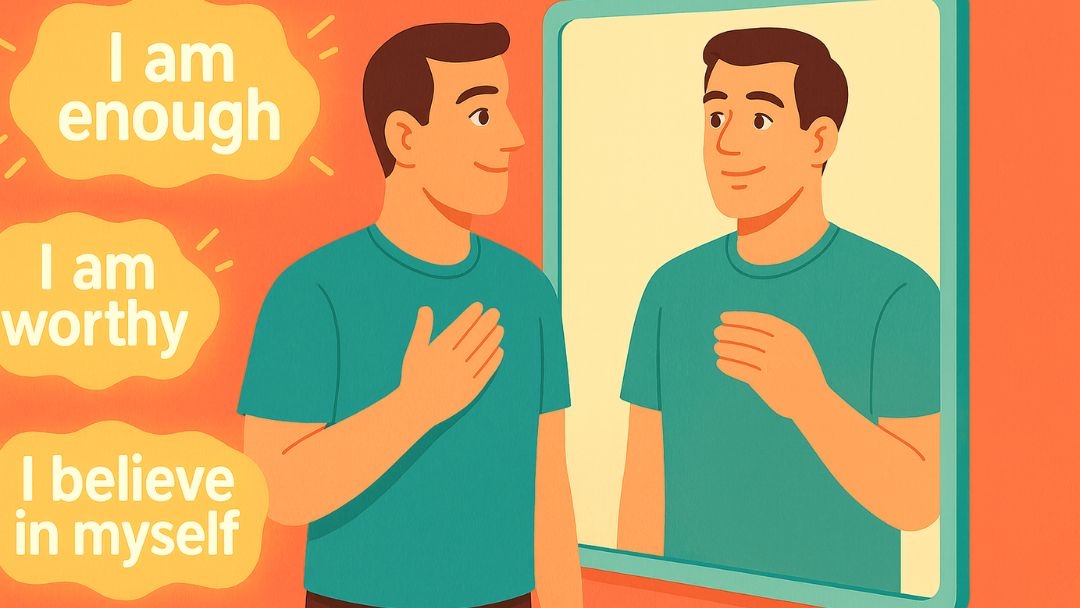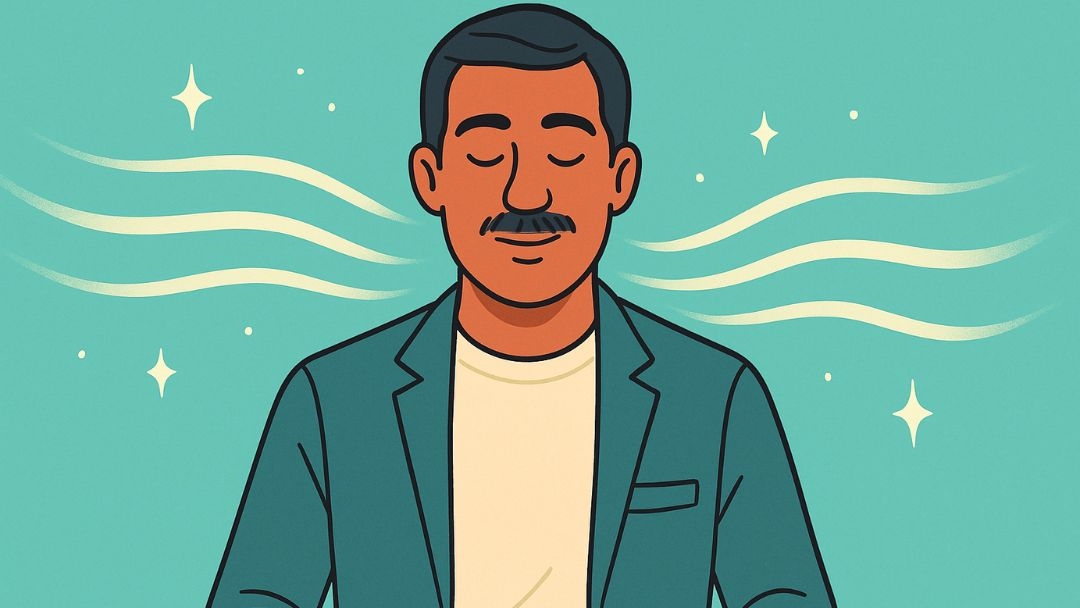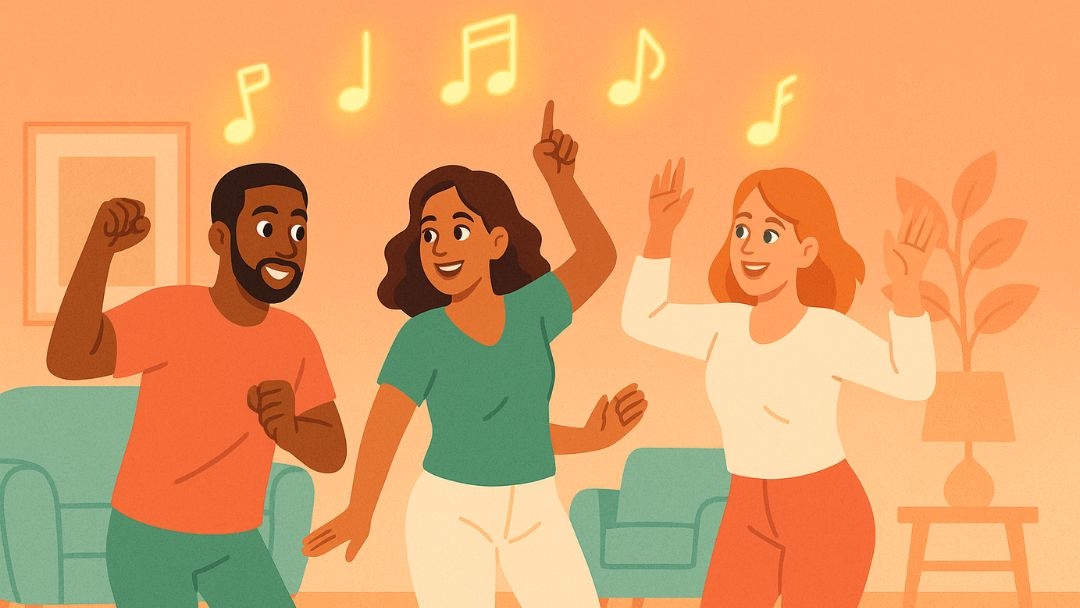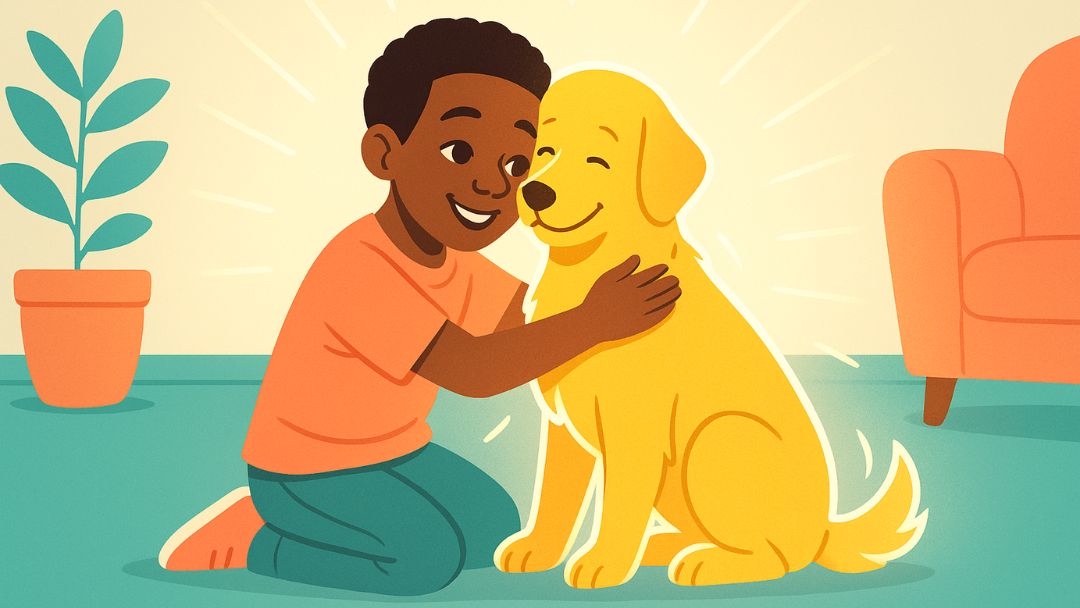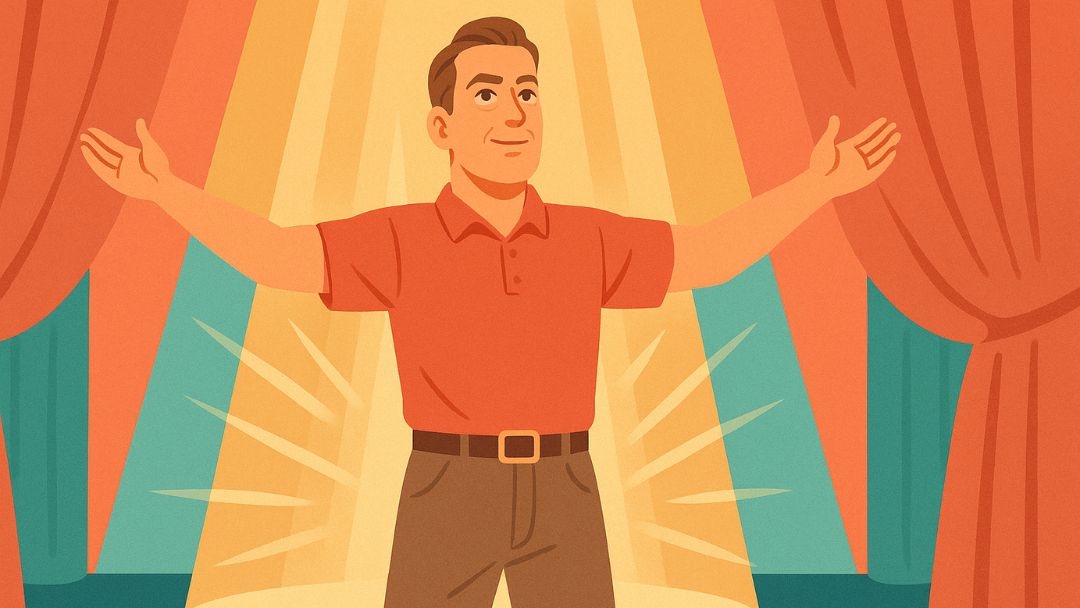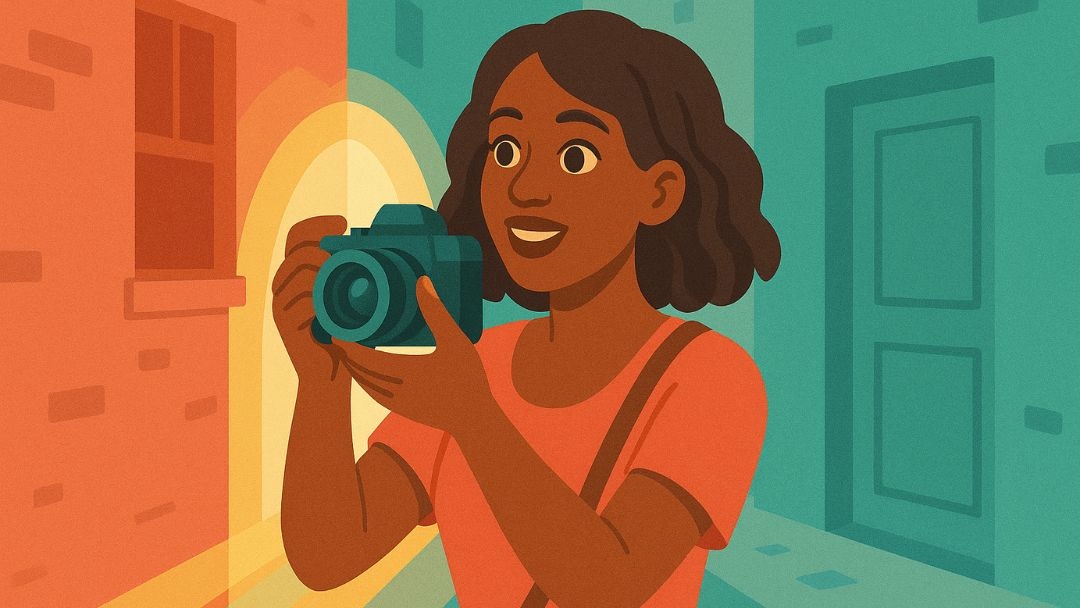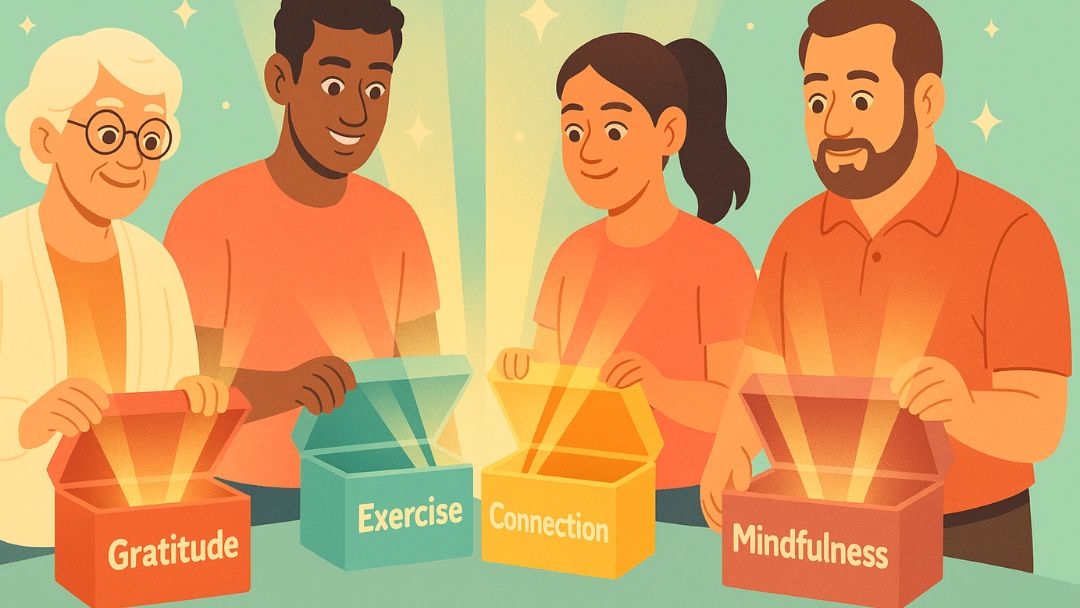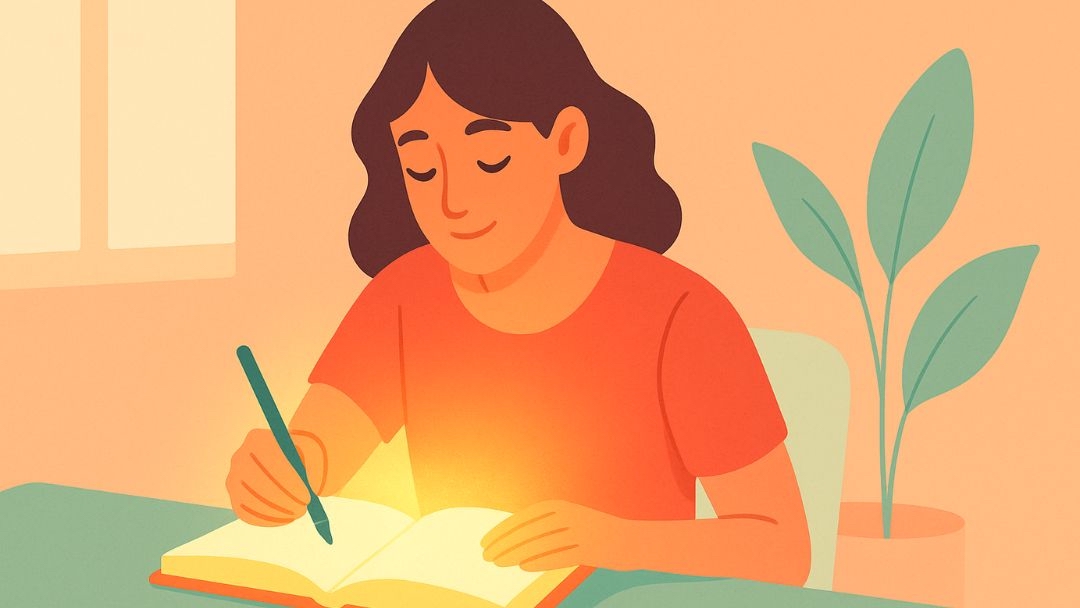Transform Your Mood in Just 30 Days With This Happiness Challenge
Happiness doesn’t have to be complicated. The 30 Day Happiness Challenge gives you a clear path to feeling better each day. With consistent action, you’ll discover how small steps can completely transform the way you experience life.


Back
10 mins read
Everyone wants to be happy. But happiness does not last without effort, at least not when you take it for granted and stop caring for it. But that's perfectly fine — it's okay to be sad and feel down sometimes. We are all humans. We laugh, we cry, we stumble, and we rise again.
What matters is how we choose to keep moving forward. I know that even in our darkest days, you can still find joy in life, primarily when you focus on simple things. You can be happy while walking through the rain and feel empty under the clearest sky, because happiness comes from within, not from what surrounds you.
In this 30-day happiness challenge, I want you to realize that happiness is not found but cultivated through presence and mindful action each day. Most importantly, I will explain how and why certain challenges can help you become happier.
Remember, the first step is always the hardest one, but it also opens a door to change. But if you are reading this, it means you have already started the journey. So without any further interruptions, let's move forward and discover the daily practices that can guide you toward lasting happiness.
Related: Take the 30-Day Mental Health and Well-being Challenge!
Day 1 - Take A Digital Break
I know it may not come easily, as we are constantly glued to our screens, but taking a daily break helps your mind recharge and your focus return. Try to spend your time engaging with life beyond screens, even if it’s just appreciating nature or having a real conversation.
How Does it Help?
Social media and the internet, in general, stimulate our reward system, and this constant cycle of instant gratification can leave you feeling restless and unfocused. This easy source of dopamine reduces your ability to receive pleasure from other simple things, ultimately making you unhappy. You can always return to this practice on other days whenever you feel the need to reset and reconnect with yourself.
Day 2 - Act Happy
Sometimes the way you act can shape the way you feel. Smile, laugh, and show joy in small ways, because your behavior can influence your mood more than you realize.
How Does it Help?
Studies prove that our facial expressions have a profound effect on our mood and how we feel. This phenomenon is known as the facial feedback theory, meaning your expressions don’t just reflect your feelings but also help create them.
Day 3 - Add The Element Of Novelty To Familiar Experiences
We adapt to familiar experiences, and even if we receive pleasure at first, the feeling fades as our brain gets used to it. So, try to add something new to your daily routine, like trying a new recipe, modifying your fitness routine, or taking another route to work.
How Does it Help?
One of the reasons why people are happier in their childhood is the effect of novelty. Everything is new to us, but the longer we live, the more routines we build, and life begins to feel repetitive and predictable. So, adding the element of novelty is the key to becoming happier.
Day 4 - Help Someone
Find a person who requires your help. It doesn't need to be a grand gesture. Just hold a door open for someone, or lend a listening ear when they need to talk.
How Does it Help?
Evolutionarily, our brains are wired to help each other. When you offer kindness, your brain releases chemicals like oxytocin and endorphins that create a sense of connection and well-being and make you happier.
Day 5 - Find a Charity & Donate
Choose a cause that speaks to you and make a donation, no matter the amount. Remember, it’s not about the size of the donation but the intention behind it.
How Does it Help?
When you give, your brain produces dopamine and oxytocin, resulting in the so-called "helper's high". By doing the right thing, you create a ripple effect of kindness that touches both the giver and the receiver.
Day 6 - Connect With Nature
Spend some time outside and let yourself be present in the natural world. Take a walk in the park, watch the sky, or even hug a tree. The more time you spend outdoors, the easier it becomes to let go of stress and feel happier.
How Does it Help?
The biophilia hypothesis states that human beings feel connected to other living things. We moved to urban environments relatively recently, and our brains still crave the natural settings where we spent most of our evolution. So, going back to our roots helps us to feel connected, both to the world around us and to our own well-being.
Day 7 - Volunteer
Join a local organization or community group and offer your time to support their mission. If you can't spend a day volunteering, try virtual volunteering or supporting small initiatives in your neighborhood.
How Does it Help?
Studies consistently show higher happiness levels and general well-being among volunteers. Giving your time creates a sense of purpose and belonging, while also strengthening social bonds.
Day 8 - Try Mindfulness Meditation
Mindfulness meditation helps us focus on the present moment. Here is how you can do it: choose a calm space, take steady breaths, and simply notice the sensations in your body. You can do a one 45-minute session, or 3 15-minute sessions during the day.
How Does it Help?
This type of meditation is extremely effective for reducing anxiety. Many things that make us unhappy come from worrying about the future and imagining problems that may never happen. Mindfulness brings your awareness back to the present, helping you let go of unhelpful thoughts and focus on what is real right now.
Day 9 - Engage In Physical Activity
Physical activity is crucial for our well-being. I know how difficult it can be to stay consistent — I’ve struggled with it myself and have lost more than 20 kilograms multiple times throughout my life. But I also know that my happiness was always at its peak when I was physically active. Do what you can today, even if it’s just a short walk, because every step adds to your sense of energy and joy. Remember, don't compare your physical condition to others! Be proud of every effort you make!
How Does it Help?
Physical activity makes your brain release endorphins, often called the “feel-good” chemicals, which naturally boost your mood and reduce stress.
Day 10 - Practice Gratitude
Take a few minutes today to write down three things you are grateful for. They don’t have to be big; even a warm cup of coffee or a kind word from a friend can make the list.
How Does it Help?
Gratitude shifts your focus from what’s missing to what’s already meaningful in your life. By noticing the good, you train your brain to look for more reasons to feel content.
Day 11 - Compliment Someone
Offer a genuine compliment to a stranger, colleague, or loved one. A kind word uplifts others and naturally boosts your own mood.
How Does it Help?
Don't underestimate the power of a word. A simple compliment can brighten someone’s entire day. At the same time, giving compliments boosts your own sense of connection and reinforces positive thinking.
Day 12 - Use Deep Breathing Techniques
Spend five minutes focusing on slow, intentional breaths. Take a deep breath, count to four as you inhale, hold for four, then slowly exhale to the count of six. Repeat several times.
How Does it Help?
Deep breathing is one of the most effective ways to reduce anxiety. It also helps to boost your attention and promotes happiness.
Day 13 - Declutter Your Space
Choose one small area, your desk, a drawer, or a corner of your room, and tidy it up. Don’t think about organizing your entire home at once; focus on one spot you use often.
How Does it Help?
An organized environment reduces mental clutter and creates a sense of calm. When your surroundings feel orderly, your brain doesn’t have to process as much visual chaos, which makes it easier to focus, relax, and feel in control.
Day 14 - Listen to Uplifting Music
A simple "What A Wonderful World" or "Happy" by Pharrell Williams can instantly shift your mood and remind you of life’s brighter side. Choose songs that make you smile, sing along, or even dance a little!
How Does it Help?
Uplifting music directly contributes to higher subjective happiness. It stimulates the brain’s reward system, releasing dopamine and reducing stress hormones.
Day 15 - Change Your Diet
We are what we eat. Certain foods can make us happier, for instance, fresh fruits, vegetables, nuts, and fish that support brain health and improve mood. Even small changes, like reducing processed sugar or drinking more water, can have a noticeable impact on your emotional balance.
How Does it Help?
Fruits and vegetables, and particularly leafy greens and berries, are packed with vitamins, minerals, and antioxidants that protect the brain and support emotional well-being. Foods rich in omega-3 fatty acids, like salmon or walnuts, nourish the nervous system and help stabilize mood.
Day 16 - Reflect on Your Achievements
We all have something to be proud of, even if those accomplishments seem small compared to someone else’s. Remember how you felt when you achieved them, and let that feeling remind you of your strength and progress.
How Does it Help?
Taking time to reflect on your achievements builds confidence and self-worth. It shifts your focus from what’s missing to what you’ve already accomplished, reinforcing a positive mindset.
Day 17 - Spend Time With Animals
Our furry friends have a special way of lifting our spirits. Cats, dogs, and other animals show us love without words. If you don't have a pet, go to a local animal shelter, or visit a pet café.
How Does it Help?
Communication with animals is a scientifically-proven way of stimulating your body to release "happy hormones". Serotonin, dopamine, oxytocin, and endorphins all increase when you spend time with pets or interact with animals.
Day 18 - Take a Cold Shower
Cold showers and ice baths have recently become a trend, and it's not surprising. While you may feel discomfort at first, the refreshing shock quickly awakens your body and leaves you feeling energized and alert.
How Does it Help?
Cold exposure improves circulation, reduces inflammation, and triggers the release of endorphins, which boost mood and resilience.
Day 19 - Write Down Your Strengths
Sometimes when we feel down, we forget how strong we are. Write a short list of the qualities that make you proud. You can check out our list of positive character traits for inspiration.
How Does it Help?
Acknowledging your strengths shifts your focus away from self-doubt and reminds you of your inner resilience, which will make you more self-confident and happy.
Day 20 - Write a Positive Review
Leave an encouraging review for a business, book, or service you genuinely enjoyed. Spreading positivity online creates ripple effects.
How Does it Help?
When you take time to articulate what you appreciated about an experience, it reinforces those positive feelings in your own mind.
Day 21 - Practice "Expansive Posture"
Spend periods of your day with open, confident body language - shoulders back, head up, arms uncrossed. Similar to a smile, a confident posture sends signals to your brain that boost self-esteem and improve mood.
How Does it Help?
Your body and mind are in constant communication, and posture is one of the most powerful ways your physical state influences your emotional state. Research by social psychologist Amy Cuddy and others has shown that adopting expansive, open postures, what she calls "power poses," can actually change your hormone levels within minutes.
Day 22 - Explore Your Neighborhood Like a Tourist
Walk around your area with fresh eyes, noticing architecture, nature, or details you usually overlook. Familiarity often blinds us to beauty.
How Does it Help?
When we walk the same routes daily, our brains switch to autopilot mode to conserve mental energy - a process called "habituation." Adopting a tourist mindset activates what psychologists call "beginner's mind", a state of openness and curiosity that naturally increases happiness and engagement.
Day 23 - Spend Your Time In Sunlight
Get outside during daylight hours, especially morning sun. Focus on your sensations, on how the warmth feels on your skin, the brightness awakens your eyes, and the fresh air energizes your body.
How Does it Help?
Sunlight exposure, particularly in the morning, is one of the most powerful natural mood regulators available. When sunlight enters your eyes, it triggers the release of serotonin, often called the "happiness hormone."
Day 24 - Learn Something New
Spend time learning a skill you've always wanted to try - whether it's a few words in a new language, a simple recipe, or a creative technique.
How Does it Help?
Learning activates your brain's reward system in a unique and powerful way. When you acquire new knowledge or master a skill, your brain releases dopamine - the same neurotransmitter associated with pleasure and motivation.
Day 25 - Do Something That Scared You as a Child
Swing on swings, climb a tree, or slide down a slide. Revisit something playful that once felt intimidating and let yourself enjoy it with fresh eyes.
How Does it Help?
Facing old fears in a lighthearted way helps rewire your brain, turning anxiety into fun. It also reconnects you with your inner child, sparking a sense of freedom you may have forgotten.
Day 25 - Look at Old Photos
Spend a few minutes looking through happy photos on your phone or in albums. Let yourself smile at good memories.
How Does it Help?
Looking at happy photos from your past activates the same neural pathways in your brain that were active during the original positive experience. This phenomenon, called "neural reactivation," means that viewing pictures of good times literally allows you to re-experience some of the joy.
Day 26 - Walk Barefoot on Natural Ground
Take off your shoes and socks and walk barefoot on grass, sand, dirt, or any natural surface for at least 10 minutes.
How Does it Help?
Research suggests that walking barefoot can help reduce inflammation, improve sleep quality, and decrease stress hormones like cortisol.
Day 27 - Listen To The Birds
Step outside or open a window and spend 5-10 minutes simply listening to bird sounds. Don't try to identify species, just let their songs, chirps, and calls wash over you.
How Does it Help?
Research shows that listening to natural bird sounds can reduce anxiety, lower cortisol levels, and improve cognitive function more effectively than other types of nature sounds.
Day 28 - Say Ten Positive Affirmations
Choose ten simple, positive statements about yourself and say them out loud while looking in a mirror.
How Does it Help?
People who practice positive affirmations experience measurable changes in brain activity, particularly in areas associated with self-processing and reward. These changes can lead to increased self-esteem, reduced anxiety, and better stress management.
Day 29 - Watch Something That Makes You Laugh
Choose a funny movie, comedy special, or humorous TV show and watch it without multitasking.
How Does it Help?
Laughter is one of nature's most effective antidepressants. When you laugh, your brain releases endorphins, the same "feel-good" chemicals produced during exercise.
Day 30 - Reflect on Your Happiness Journey
Take 15-20 minutes to write about your experience with these daily happiness practices. Which challenges felt most natural? Which ones surprised you with their effectiveness? What patterns do you notice about what consistently brings you joy?
How Does it Help?
After 30 days of happiness practices, reflection transforms those experiences from random moments into conscious wisdom about what truly works for you. When you identify which challenges consistently lift your mood, you create a personalized happiness toolkit that belongs uniquely to you.
Now you can use this self-knowledge to intentionally choose practices that reliably boost your mood during difficult times. Good luck!


Return to Blog
